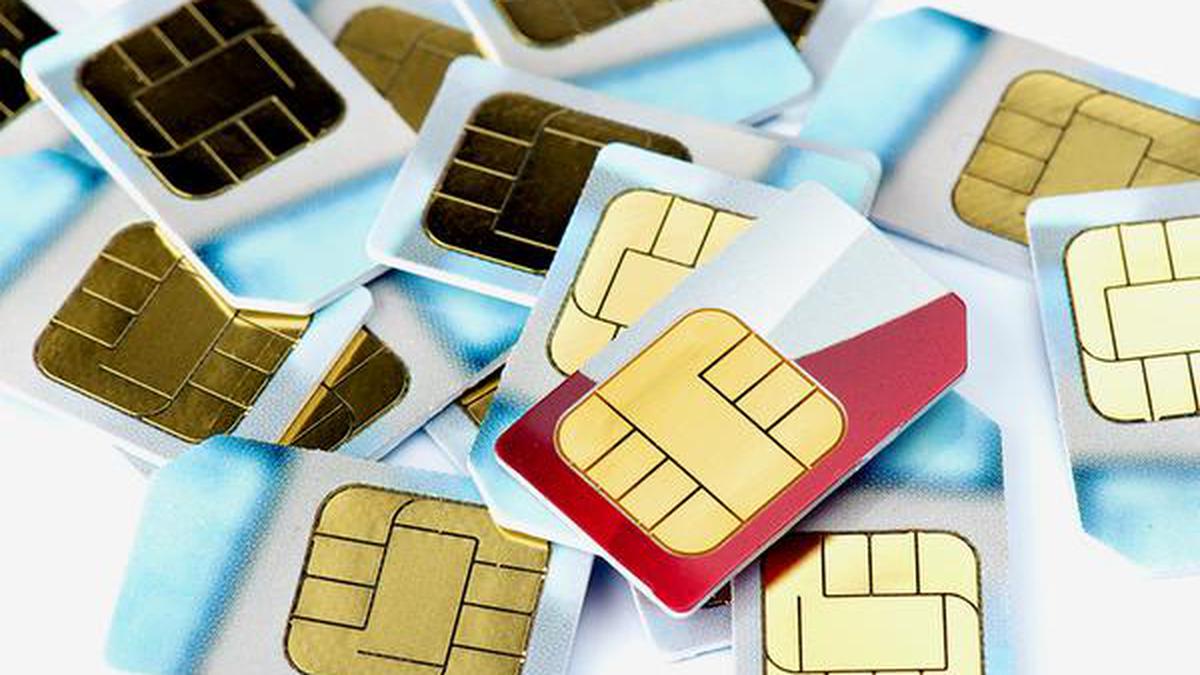
Explained | What are the latest revisions to the process for acquiring a SIM? Premium
The Hindu
Union Minister Ashwini Vaishnaw recently introduced revised norms for bulk procurement of SIM cards, as well as norms for registering the final point of sale by licensees. We explore the changes and why they were required.
The story so far: On August 17, seeking to further tackle the menace of cybercrimes and financial fraud, Union Minister for Telecommunications Ashwini Vaishnaw introduced two reforms. These entail revision of norms for bulk procurement of SIM cards and registering the final point of sale (PoS) by the licensees (or providers). The reforms are meant to strengthen the citizen-centric portal Sanchar Saathi that was launched in May this year with the same objective.
Broadly, the citizen-centric portal allows citizens to check the connections registered against their names, block mobile phones which are stolen or lost, report fraudulent or unrequired connections and verify the genuineness of a device (before a purchase) using the IMEI (International Mobile Equipment Identity). It utilises two modules, namely, the Central Equipment Identity Register (CEIR) and the Telecom Analytics for Fraud Management and Consumer Protection (TAFCOP).
Sanchar Saathi has, till date, analysed 114 crore active mobile connections. Of these, 66 lakh connections were flagged as suspicious, and 52 lakh connections were disconnected because they failed re-verification. Other than this, 66,000 WhatsApp accounts have been blocked and 8 lakh bank/wallet accounts used by fraudsters were frozen. Furthermore, as per the DoT, more than 300 FIRs have been filed against more than 1,700 dealers.
From now on, it would be mandatory for franchisee, agents and distributors of SIM cards– all PoS—to be registered with the licensees or the telecom network operator. The onus would be on the operator to carry out an “indisputable” verification of the PoS. Importantly, police verification (of the dealer) is mandatory.
Further, the formal agreement for the sale of SIM cards between the PoS and licensees must be put down in writing. Existing SIM card providers have been given 12 months to comply with the registration requirements.
If the PoS is found to be involved in any illegal activity, the agreement would be terminated with the entity being blacklisted for 3 years. It would also draw a penalty of Rs 10 lakh.
The DoT holds that these provisionswould help in “identifying, blacklisting and eliminating rogue PoS, from the licensees’ system and provide and encouragement to the upright PoS.” The idea is to minimise instances (and PoS) where dealers have, by fraudulent practices, issued SIM cards to “anti-social/anti-national elements”.

The Union Budget unveiled on February 1, 2025, has come at a time of unprecedented global uncertainty and a flagging domestic economy. The real GDP growth is estimated at 6.4% for 2024-25 and between 6.3-6.8% for 2025-26, a far cry from >8 percent growth required annually to make India a developed nation by 2047. While much attention has been devoted to the demand stimulus through income tax cuts, not enough is said about the proposed reforms in urban development, tariff rationalisation, and regulatory simplification aimed at making Indian cities and corporates more competitive. Since the majority of economic activity is located in cities (urban areas account for ~55% of GDP) and produced by large corporates (~40% of the national output and 55% of India’s exports), the above-mentioned reforms have a pivotal role in improving India’s trend growth rate. Below we unpack each reform.












